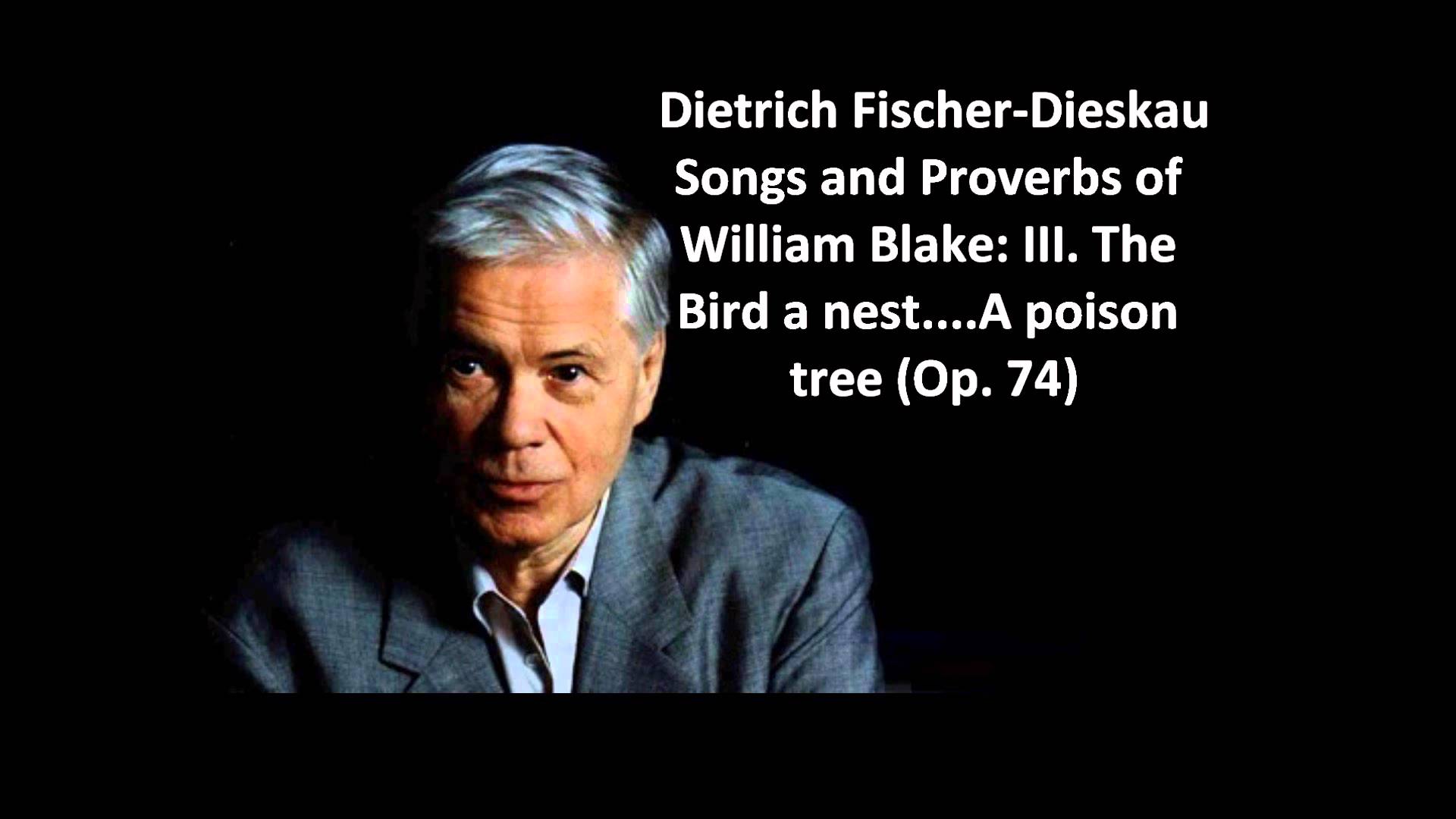One of the pieces of music that has haunted my mind (and by that I mean made my imagination run wild) since I was first exposed to it is Britten’s Songs and Proverbs of William Blake. Written in 1965 for Dietrich Fischer-Dieskau, the piece serves as a meditation on the state of the world and the frailty of man in Britten’s day and Blake’s, about 200 years prior to the work’s composition.
Songs and Proverbs is a truly unique piece, and stands out from Britten’s output and the song repertoire at large. Britten sets the songs as a continuous thought, with the individual songs connected with wild, mystical recitatives. The poems themselves comment on everything from child abuse to murder (Britten’s favorite subjects). I find them to be some of the most poignant songs he ever wrote, although through my experience with them, they are most potent when performed as an opus. They’re such a particular flavor that they’re rather difficult to remove from their natural habitat, as is the case with several of Britten’s other cycles, but even more so here because of the continuous nature of the composition.
As is usually the case with Britten, there seeps in a strange, abstract religious connotation. In the first recitative, we have four exclamations which set the philosophical yet somehow sultry tone of the entire piece:
The pride of the peacock is the glory of God.
The lust of the goat is the bounty of God.
The wrath of the lion is the wisdom of God.
The nakedness of woman is the work of God.
And then we dive into Blake’s brutal, twisted, yet undyingly honest world.



0 Comments